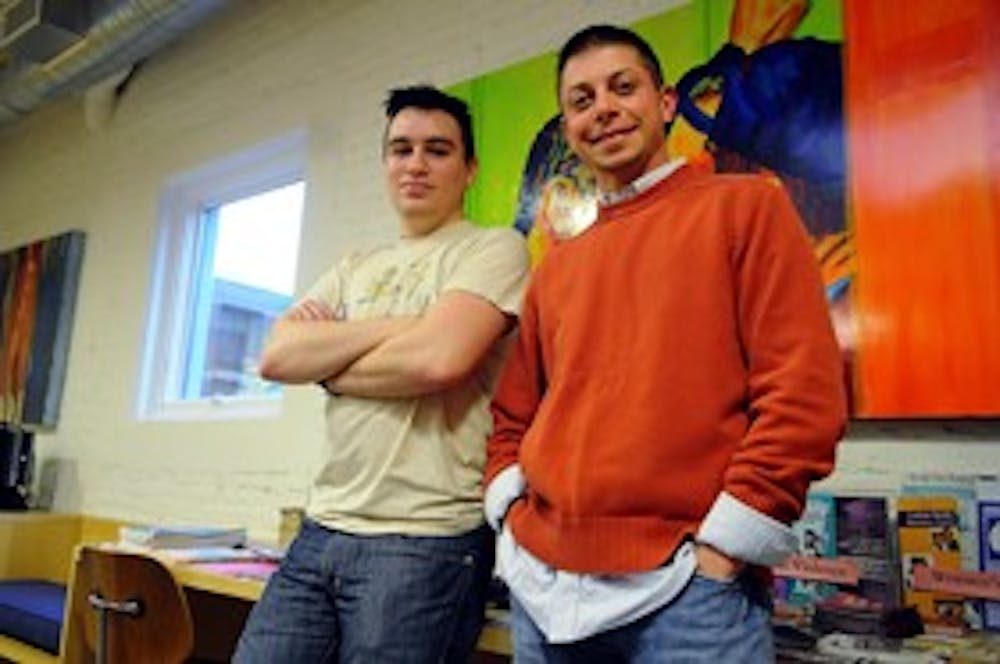
When College junior Josh Tweedy arrived at Penn, he was male. He didn’t plan to disclose to anyone at Penn that he had been born female, and that 10 years before he had undergone sex reassignment surgery.
The 32-year-old, non-traditional student has “come out” three times. The first was at age 15 as a lesbian, the second at 22 when he had decided to transition into a male body and the third while at Penn when he identified himself as a gay “transman.”
Like others who have come out at Penn, Tweedy emphasized that coming out is a process. Even with the impetus of National Coming Out Day, which was Oct. 11, it can’t be rushed, and it can’t be formulized. But Penn does offer resources that can help.
Tweedy began the coming out process when he was 15 — well before he was at Penn — and he struggled with the idea of “heteronormativity.”
Before transitioning to male, Tweedy recalled searching online about how to “pass as a man.”
“They said things like ‘men never sit with their legs crossed at the knee,’ and ‘this is how men get their hair cut,’” Tweedy said. “It was really ridiculous stuff that I fell for at the beginning.”
After his transition, Tweedy dated only women so he would “look normal” as a heterosexual man. However, he continued to have secret sexual relationships with men. About three years ago, however, he started to date men publicly.
Tweedy was hesitant about coming out again because he felt he might be “taken less seriously in general about my decision-making process” — since he had come out twice before. He was particularly worried about coming out again to his family, who was always very accepting of him and with whom he remained very close through his questioning and transitioning process.
However, he decided to “stop editing my life, and be more honest.” At Penn, he stepped entirely out of the closet as a “gay transman.”
“The regular undergrad population here in general really impressed me,” he said. He cited the support of the Lesbian Gay Bisexual Transgender Center, Penn administration and the diversity of Penn’s students.
Tweedy emphasized that self-identification is a “personal journey.”
“There’s not this moment in one’s life where you come out, and you’re out, like a point on a line,” he said. “It can take you several weeks, several years, and can sometimes never be done.”
But he says the process might not be over.
“I reserve the right to change,” Tweedy said. “If I wake up this morning and love my partner, and by lunch I want to sleep with a woman, that’s valid, too. I can change from minute to minute.”
College senior Lee Huttner agreed that coming out is a process, rather than something that happens “all at once.” But for Huttner, the struggle was more with understanding his own identity than with telling others about it.
“I’ve always known — you always do know,” he said, “but I never put me being attracted to men and ‘gay people’ together.”
Huttner believes that a number of factors — including some family problems — catalyzed his self-identification process.
Once Huttner had self-identified as gay, he said he found Penn’s liberal environment welcoming enough to come out the summer after his freshman year. He also relied on the help of his close friends at Penn and support from his family, which he said may be rare for LGBT students.
LGBT Center Director Bob Schoenberg emphasized that Penn is a welcoming environment for LGBT students because “LGBT presence is valued as part of the diversity, and as a result, there’s a range of supportive policies and programs and services, including the LGBT Center, that are available at Penn.”
He explained that Penn’s Queer Student Alliance monitors “Q Space,” an anonymous chat room, which is available four hours a week. QSA also holds an anonymous gathering for questioning students each month.
The LGBT Center is also in the process of producing “Closet Confessionals,” a series of videos in which Penn students share their own coming-out experiences. The videos will be posted on the center’s web site.
“The outside world is full of idiots and bigots, and you’re going to have to deal with it, as does anyone who subscribes to being any minority,” Huttner advised students who are questioning their sexual orientation. “I don’t think anyone anymore doesn’t experience prejudice of some kind.”
The Daily Pennsylvanian is an independent, student-run newspaper. Please consider making a donation to support the coverage that shapes the University. Your generosity ensures a future of strong journalism at Penn.
DonatePlease note All comments are eligible for publication in The Daily Pennsylvanian.





